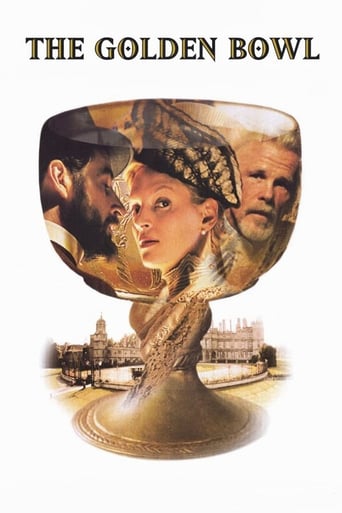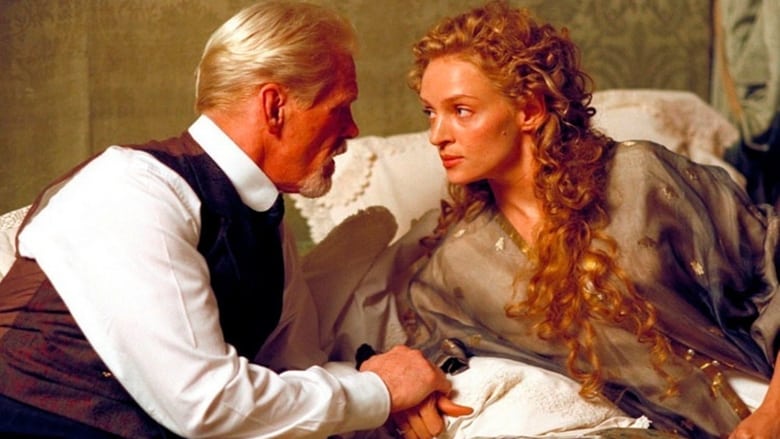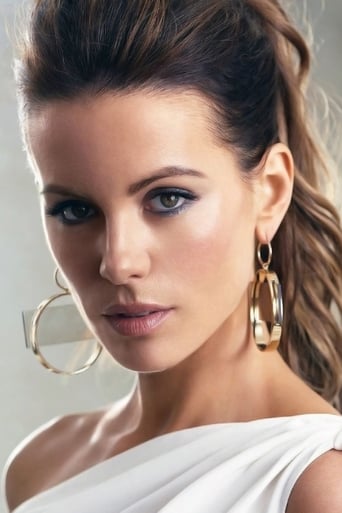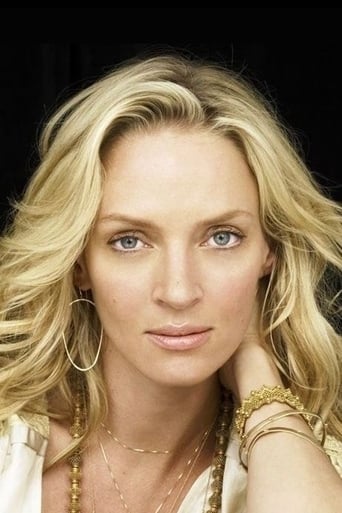

The Golden Bowl (2000)
Adam Verver, a US billionaire in London, dotes on daughter Maggie. An impecunious Italian, Prince Amerigo, marries her even though her best friend, Charlotte Stant, is his lover. She and Amerigo keep this secret from Maggie, so Maggie interests her widowed father in Charlotte, who is happy with the match because she wants to be close to Amerigo. Charlotte desires him, the lovers risk discovery, Amerigo longs for Italy, Maggie wants to spare her father's pain, and Adam wants to return to America to build a museum. Amidst lies and artifice, what fate awaits adulterers?
Watch Trailer
Cast


Reviews
Charlotte Slant, an penniless American socialite, left her country to settle in Europe. This way, perhaps, her reduced means would go further in the Europe of the last part of the XIX century. In Florence, she meets, and falls in love, with an impoverished Italian prince. They become lovers, but neither one has the money to live well in the society both loved. When Charlotte goes to London, her good friend Fanny Assingham, an American with a lot of social connections, has a plan to marry her to Adam Verver, the first American billionaire, whose own daughter, Maggie, happened to be Charlotte's friend.Amerigo had followed Charlotte to England, but he was seeing Maggie, a possible meal ticket, a way out for his money problems. One day, Charlotte and Amerigo visited an antique shop where they found a gorgeous vase decorated with gold. The owner tells them it is a perfect piece. The price though, kept it out of her budget, besides, she was not completely sure Maggie would like it. Amerigo's marriage to Maggie is a match made in heaven for Adam, who now can add a noble title to his future grandchildren.Maggie and Amerigo divided their time between the house in London and her father's splendid palace he rents in Leicestershire. Charlotte, now married to the older Adam, had not stopped loving Amerigo. Their passion is stronger, if anything. One week-end Charlotte and Amerigo go to a country estate where a celebration is happening. When they are to return to London, they decide to stay overnight at Gloucester, where they spend the night at an out of the way inn. Maggie is worried, but when they reappear, Amerigo explains how they wanted to see the magnificent cathedral. In doing so, he mentions something he has not the correct answer. Who is buried at the cathedral? Was it Richard II, or Edward II? Maggie, who obviously knows the answer is upset.Maggie, shopping at the antique shop is offered the golden bowl. The owner explains she can have it for less since he discovered a flaw in the crystal. When the merchant goes to deliver the piece, he notices the picture of Amerigo and Charlotte on a table. He mentions to Maggie this was the couple interested in buying the precious vase a few years ago. Maggie realizes the deception. Adam, noticing his daughter's distress, decides it is time for him to go back to America where he is building a museum to house all his European treasures. Charlotte, reluctantly, is made to go. In spite of her distaste for her native country, Charlotte will become a bigger socialite because of Adam's money, but in the process, she loses Amerigo.If there was anyone meant to bring Henry James' novel to the screen, it was James Ivory, a man that had made excellent adaptations of mostly English classic authors. The adaptation was entrusted to Ruth Prawer Jhabvala, an usual collaborator, who had done well transferring the original works into cinematic terms. Unfortunately, this venture did not pay off the same way that most of the other efforts did. Part of the blame must go into the casting of the four principal roles, and the almost static staging of the novel. Henry James' work presents some difficulty for the transfer to the screen.Uma Thurman is a ravishing creature. Her Charlotte is not exactly what one would have thought it could be. Complicating matters, there is no chemistry between her and Amerigo. Jeremy Northam's accent is not convincing for a noble Italian prince. Nick Nolte, who had worked with Mr. Ivory before, has a minor role. Kate Beckingsale, as Maggie is also not at her best. The only one that seems at ease is Anjelica Huston, whose Fanny is the best thing in the picture, but she is only a minor character.The film is gorgeously photographed in authentic settings. Tony Pierce-Roberts' camera captures those great places in all its splendor. The musical score is by Richard Robbins.
Henry James has been given the Merchant Ivory treatment before, and he and the film makers go well together. His lush prose matches the lushness of Merchant Ivory production values, and their casting is always interesting. Uma Thurman does not spring to mind as a likely Jamesian character, but she acquits herself well as the bold and beautiful Charlotte Verver. Nick Nolte is not bad as her mega-rich husband Adam, who she marries for his money despite being in love with the handsome but penniless Prince Amerigo (Jeremy Northham). Kate Beckinsale plays Adam's callow young daughter Maggie who marries Amerigo, unaware of his relationship with her friend Uma. Screenwriter Ruth Prawer Jhabvala doesn't try to imitate the Jamesian style but keeps the dialogue reasonably simple, though Jeremy Northam's Italian accent reminded me of the Count from Sesame Street ('ave I a number for you!) Several English stately homes including the Elizabethan Burghley House put in special guest appearances, as does Angelica Huston as an unlikely English aristocrat.As a substantial and very wordy novel has been shoehorned into 120 minutes on screen, much has been omitted and the plot line simplified. There was a 6 part TV miniseries made in 1972 which was rather less lively than this production. Even the Golden Bowl itself (gilded crystal rather than gold) meets its end at the hands of a different character in the film. Yet despite the lush setting, it is James's plot which carries the picture contrived, perhaps, but interesting nonetheless helped along by fine performances from most of the principals. Kate and Uma are able to exploit the fact that James's female characters tend to be better realised than his men. I think I'd have to say that the film is easier to watch than the novel is to read.
The film is very effective in conveying the spirit of the novel. By the end you will have that bittersweet taste in your mind, as it usually happens with Henry James stories... Not a single character can say that their heart is completely content. Once again, as in other Merchant Ivory productions, the cinematography and art direction is impeccable. Also, the costume design is both classic and risky (Uma Thurman at the ball is exotic and sensual). Now, the main flaw in terms of editing is pacing. While this type of narrative calls out for a slower pace, at times it just didn't feel right. It is like different hands took over parts of the movie.As for acting, it is quite good in general. Kate Beckinsale starts out very stiff, but warms up throughout the story. As for handsome Jeremy Northam, his Italian accent seemed contrived and was a bit distracting.
Prince Amerigo (Jeremy Northam) has a castle on the verge of ruin and empty pockets. Although he lusts after a poor but beautiful lady named Charlotte, he decides to marry her very rich friend instead. His new wife, Maggie, is a lovely, innocent human being, totally unspoiled by wealth. Maggie hopes to see her widowed father happily remarried and encourages his interest in Charlotte. It happens. Charlotte agrees to marry America's first billionaire, what a tough gig. But, why? Does she have any affection for Maggie's father? Or does she want to stay in close contact with Amerigo? It seems the latter, for Charlotte and the Prince go everywhere together, now that it is acceptable for two "relatives" to gad about. What is happening here? The book was written over 100 years ago but this story of human nature shows that very little changes under the sun. Northam and Thurman excel as the egocentric and evil humans who are so very lovely to look upon, it hurts. Beckinsale and Nolte likewise give nice turns as the folks who still have hearts beating in their breasts, despite their riches. As period pieces go, the costuming, the scenery, the staging, and the cinematography here are sumptuous. True, the pace is somewhat slow and the tale is intricate and subtle, requiring a repeat viewing, perhaps. However, Merchant and Ivory fans and non-fans will be rewarded by sitting through this timeless and tantalizing tale. If anyone wants to arrange for friends to share a movie evening together, the Bowl will have everyone talking.




